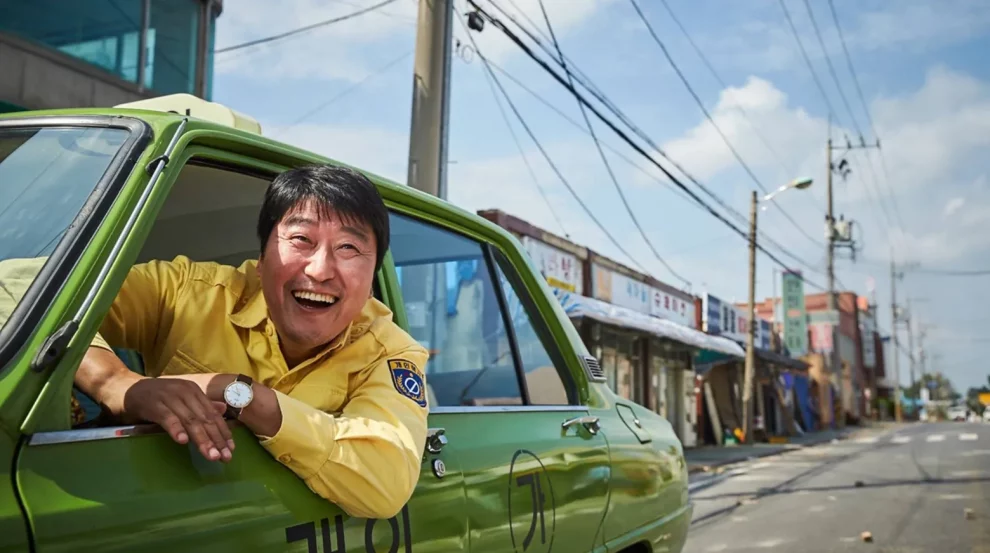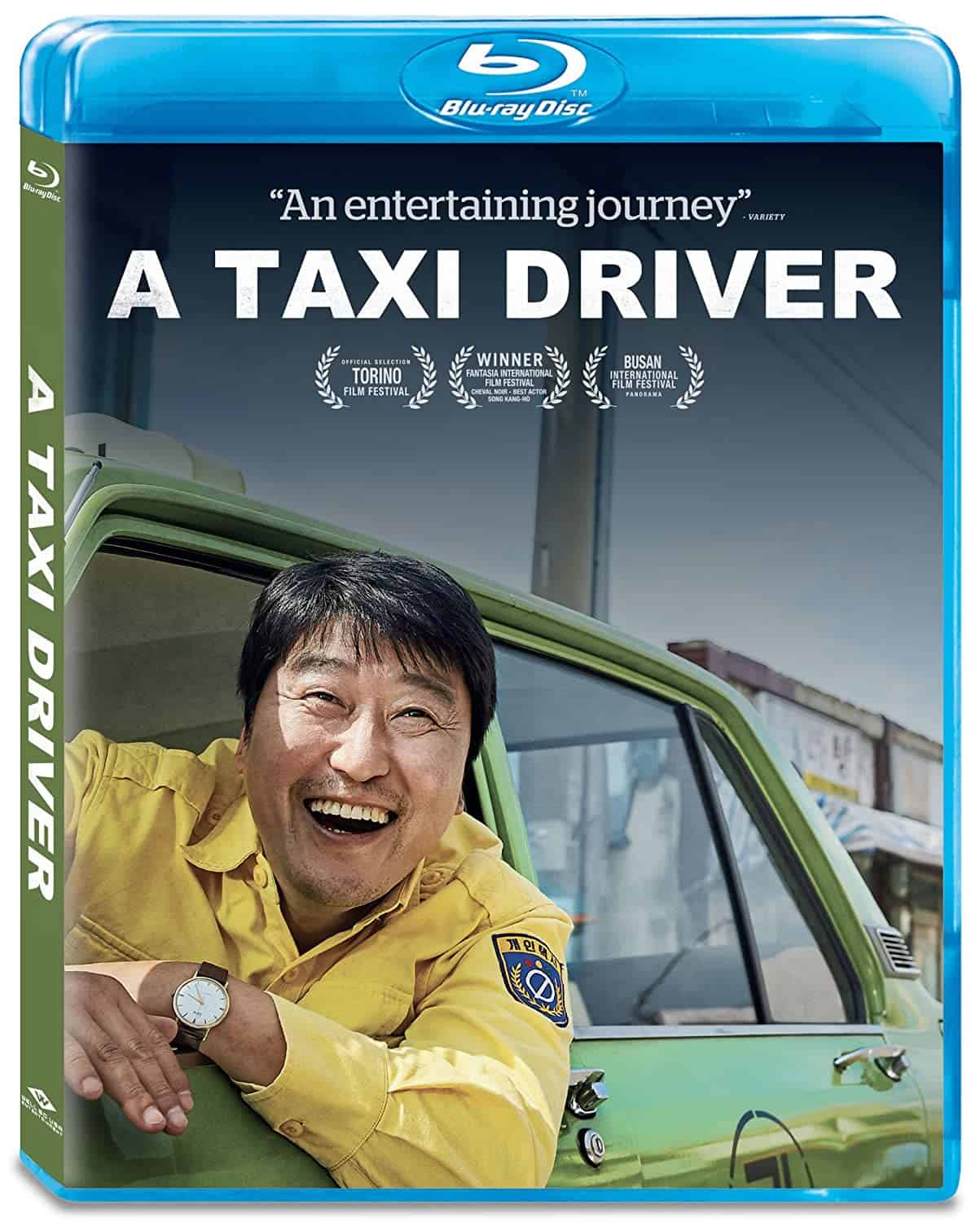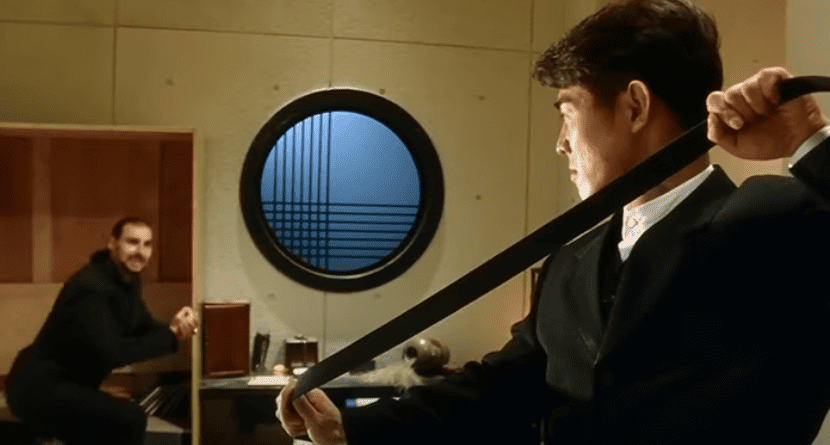“A Taxi Driver” is a historical drama with light action and comedy elements and was South Korea's submission to the 90th annual Academy Awards for consideration in the Best Foreign-Language Film Oscars race. The film did not secure a nomination, however, as “Parasite” didn't just become the first South Korean film to win an Oscar in 2020 but was also the first South Korean film ever to even earn an official Oscar nomination, which is a glaring oversight on the Academy's behalf.
Buy This Title
on Amazon by clicking on the image below
“A Taxi Driver” is based on the true story of a Seoul taxi driver who transported a German reporter into the military-occupied city of Gwangju in 1980. University students and other Gwang-ju citizens who were protesting an attempted military coup are met with a violent response from the police and military, and the government is preventing the spread of any news from leaving the city. Instead, the story is spun in the media to make it look as if the peaceful protestors are actually the ones spurning violence and killing soldiers instead of the other way around. You might not be familiar with the Gwangju protests, but that story may sound familiar all the same as it is, sadly, proven universal.
You might see the bright colors and Song Kang-ho's smiling face on the poster of “A Taxi Driver” and expect the film to be a light-hearted romp. While that isn't entirely untrue, you would be in for a surprise once the heavier plot elements are set in motion. Even still, the cheery poster is NOT misleading. “A Taxi Driver” is an extremely bright and colorful film, with energetic music, quirky humor, and an exceptionally goofy performance from the great Song Kang-ho for much of the film, but director Hun Jang takes a decidedly unflinching gaze when examining the heavy subject matter at the core of the drama. There can be a slight degree of tonal dissonance between these two extreme ends of the spectrum, but it mostly works. Song Kang-ho's deft, nuanced performance deserves much of the credit for navigating these tonal shifts smoothly.
While Song Kang-ho plays the lead character, “A Taxi Driver” is actually somewhat of a buddy movie with co-leads to be found in this South Korean taxi driver and the German reporter, played by Thomas Kretschmann, who is the only hope for getting the truth out of Gwangju. Kretschmann's dialogue is entirely in English, and “A Taxi Driver” does not show him in top form. While far from bad, he comes off as flat and wooden, especially when next to Song Kang-ho, who is left acting circles around him.
The dynamic between these two characters should make for some great odd-couple humor as they form a begrudging buddy duo and an eventual friendship, but the actors have no chemistry with each other whatsoever. The last act of the film is intended to showcase the development of a genuine friendship between them, but it is difficult to buy. The movie's schmaltzy ending would be quite touching if the relationship between the two leads was better developed. If “A taxi Driver” has a single weak link, it is the lack of chemistry between the two main characters.
Song Kang-ho gives a great performance as per usual, but his character may take a little bit of getting used to at the start this time around. He is an odd fellow who is charismatic and works well as a POV character for the audience. Since he is cut off from the current happenings in the city of Gwangju, just like many viewers who lack the historical context, he is able to discover information at the same pace as the audience. The one aspect of his character that may require a period of adjustment is that he does a lot of talking out loud to himself. Having a protagonist speak their thoughts aloud is always a little clunky and can often be a sign of lazy writing. Luckily, Song Kang-ho is good enough to sell it, and it becomes more believable once he begins speaking to himself in Korean in front of the German reporter who can't understand him. Where it's at its most distracting is the very beginning of the movie where he's constantly speaking to himself while alone in his taxi.
The main character begins the film in the dark about the protests, the military, and the political temperature of the area. You get a sense that he doesn't know what is going on and doesn't care to know what is going on. He also holds a perspective of respecting authority and believing what he is told by those in power. This sets him up to have a substantial character arc throughout the course of film, which is executed extremely well.
After he witnesses the military response to innocent civilians up close and personal, he says: “But why were the soldiers acting that way? Beating and chasing people who weren't doing anything?” At its heart, “A Taxi Driver” is the story of a man being radicalized by the police and military response to peaceful protestors, which is a theme that many viewers might find relatable. The film might be about the 1980 protests in Gwangju, South Korea in particular, but its depiction of an armed and violent response to peaceful protests is, sadly, more universal.
There is plenty of hardship shown in the movie, of course, but there is also a lot of joy, and not just coming from the often goofy leading character. The film takes the time to let viewers meet the residents of Gwangju and see their love for life. It is all in service of humanizing the people whom those imposing martial law seek to dehumanize through violence and brute force. This humanist layer makes a huge difference and elevates all that precedes and follows it.
“A Taxi Driver” deserves a great deal of credit for not shying away from the depiction of police and military violence in the latter half of the film. The movie is banned in China, and you can probably guess why. The violence is never gratuitous, but rather unflinching in its portrayal of this event. Many civilians are gunned down, and the film presents this with realistic simplicity. On the other hand, it does exaggerate the counterpoint to this violence, which is the heroic acts of various taxi drivers. This exaggeration may have been a misstep, as it hurts the realism of the movie and feels decidedly over-the-top in a way that stands opposed to the realistic depiction of the military. As the plot continues, it builds to a big “actiony” climax with a dozen cars speeding and crashing and guns firing and all kinds of destruction. The action is not poorly presented but it does feel unnecessary and even out of place for the story being told. The action that aims for excitement lessens the impact of the real-world death and oppression depicted elsewhere to a slight degree by contrast, which is where full emphasis deserves to be placed.
This is a story where the antagonist, as it were, is the military/police force at large, but in order to have a singular personified “bad guy,” the film opts to include one particularly ruthless military-state villain. It is understandable why they went in this direction— audiences can more easily fear and wish defeat upon an individual than they can a faceless organization— but the opposite approach may have been preferable. Hanging the villainy on the shoulders of this one individual weakens the message of the film to a degree. The singular villain isn't entirely ineffective, but the way he is used is a little clunky. It says “this guy is bad,” rather than “the actions of the military are bad,” which is the overall message of the film.
“A Taxi Driver” is a solid film with a great message and strong themes. There are a few shortcomings that hold it back from reaching outright greatness, but it is absolutely worth watching. It is a resonant and accessible film that could be recommended to pretty much anyone.

















